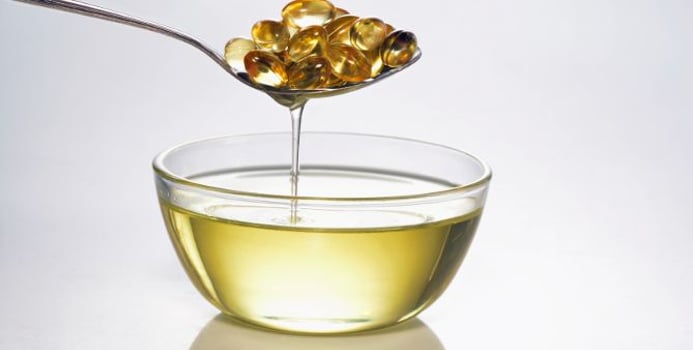DHA fatty acid, or docosahexaenoic acid, is one of the omega-3 fatty acids that bring so many touted health benefits. Fish oil and cod liver oil two good sources of DHA fatty acid. Here are some of the benefits of this nutrient.
Why DHA is Essential to Your Health
DHA fatty acid is essential to your health, as it's necessary for many of your body's functions, including brain and heart function. But your body doesn't produce DHA fatty acid, so you need to get an adequate amount of it in your diet.
DHA fatty acid is a key constituent of your nervous system. In fact, your brain is literally made up of fatty acids; DHA accounts for about 40% of the fatty acids in your brain. The retinas of your eyes are 60% DHA fatty acid, and the plasma membranes that encase your neurons are 50% DHA.
DHA is also believed to contribute to heart health, and can help prevent and treat heart disease. Pregnant women and infants need large amounts of DHA, because it's essential for cognitive development. DHA may also help prevent Alzheimer's disease and some cancers. DHA deficiency is known to lead to cognitive impairment.
Benefits of DHA Fatty Acids
DHA fatty acids are essential to cognitive development, so infants less than two years of age and pregnant women need large amounts of DHA in their diets. DHA is also present in breast milk, which may explain why babies who breast feed often have higher IQs than babies who don't.
DHA is essential for optimum brain function. It helps improve memory and it's good for your eyesight. DHA fatty acids have also been associated with positive moods and feelings of well being. DHA's presence in the brain, retinas and neural pathways help to conduct the electrical messages that your brain sends throughout your body; without it, your brain and nervous system simply can't function.
DHA fatty acid is one of the essential fatty acids that helps your liver and kidneys make L-carnitine, which your body needs in order to produce energy from food. Nearly all the cells of your body contain L-carnitine, but the skeletal and cardiac muscles contain the highest concentrations. For the reason, DHA can improve your heart health and overall muscular function.
Getting More DHA Into Your Diet
These days, most Americans are getting less DHA into their diets than ever before, mostly due a recent change in the cattle industry--cattle are now fed on grain rather than grass, which lowers the levels of DHA in the meat. Because your body can't adequately synthesize this nutrient, you need to make sure you get plenty of DHA in your diet.
The best sources of DHA are:
- lean red meats
- poultry
- milk
- eggs
Unfortunately, may dieters cut these very foods out of their diets as part of a weight control plan. Vegans and vegetarians are also at risk for severely low DHA levels.
Fish contains large amounts of DHA, but you'd need to eat it several times a week if you're not eating red meat, poultry, milk or eggs. However, a daily fish oil or cod liver oil supplement can supply adequate amounts of DHA fatty acid.



